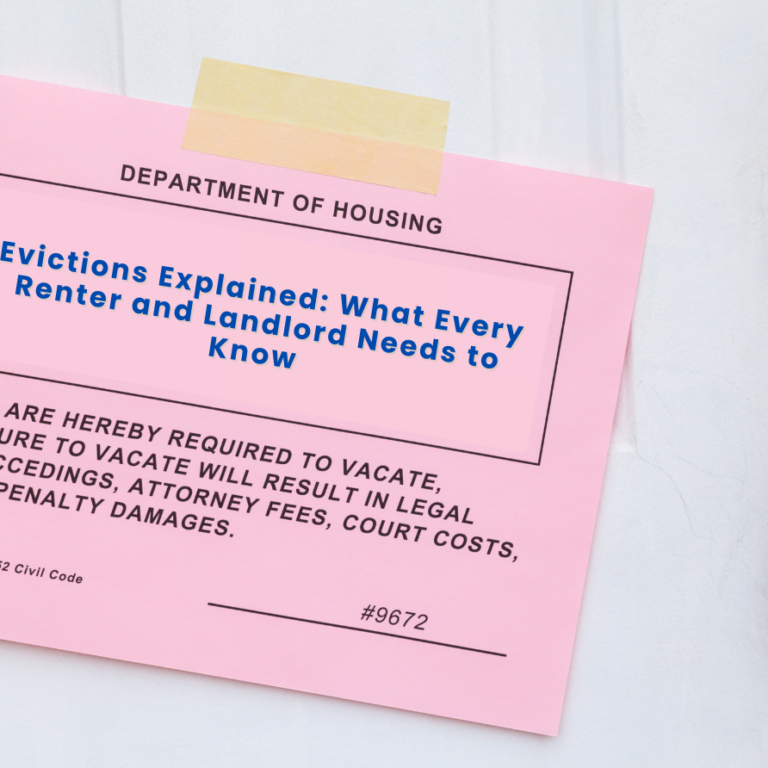What Are the Best Tax Credits for Homeowners in 2025 ?
What are Tax Credits and How Do They Work?
Tax credits are dollar-for-dollar reductions of your federal income tax liability. They directly lower the amount of tax you owe, making them more valuable than tax deductions, which only reduce your taxable income.
To claim a tax credit, you typically need to meet specific eligibility requirements and provide supporting documentation. Once approved, the credit is subtracted from your total tax bill. If the credit exceeds your tax liability, you may receive a refund.
Difference Between Tax Credits and Tax Deductions
Tax Deductions
A. Reduce your taxable income.
B. The benefit depends on your tax bracket. Higher-income taxpayers typically benefit more.
C. Example: Mortgage interest deduction.
Tax Credits
A. Directly reduce your tax liability.
B. Benefit is the same regardless of tax bracket.
C. Example: Child Tax Credit.
Types of Tax Credits: Refundable vs. Non-Refundable
Refundable Tax Credits
A. Can reduce your tax liability to zero and result in a refund.
B. Often target low-income individuals and families.
C. Examples:
- Earned Income Tax Credit (EITC)
- Additional Child Tax Credit (ACTC)
Non-Refundable Tax Credits
A. Can only reduce your tax liability to zero.
B. Provide tax relief but do not offer refunds beyond reducing the tax bill.
C. Examples:
- Child Tax Credit (CTC)
- American Opportunity Tax Credit (AOTC)
Common Tax Credits and Their Details
Tax credits help reduce the amount of tax owed and can provide significant savings for eligible taxpayers. Common tax credits include the Earned Income Tax Credit (EITC), which benefits low-to-moderate-income workers by reducing their tax burden and potentially providing a refund. The Child Tax Credit (CTC) offers financial relief to parents with qualifying children, while the American Opportunity Tax Credit (AOTC) helps students and parents offset the costs of higher education. Homeowners may benefit from the Residential Energy Credit, which provides incentives for energy-efficient home improvements.
Child Tax Credit (CTC)
A. Provides a credit for each qualifying child under the age of 17.
B. The credit amount varies based on the child’s age and the taxpayer’s income.
C. A portion of the credit may be refundable.
Earned Income Tax Credit (EITC)
A. Targets low-to-moderate-income working individuals and families.
B. The credit amount depends on income, filing status, and number of qualifying children.
C. It’s fully refundable, meaning you can receive a refund even if you don’t owe any taxes.
American Opportunity Tax Credit (AOTC)
A. Helps offset the cost of higher education expenses, including tuition, fees, and books.
B. The credit is worth up to $2,500 per eligible student per year.
C. A portion of the credit is refundable.
Child and Dependent Care Credit
A. Helps offset the cost of childcare expenses for qualifying dependents.
B. The credit amount varies based on income and the number of qualifying dependents.
First-Time Homebuyer Credit
A. A non-refundable credit for first-time homebuyers who meet certain income limits.
B. The credit can be claimed over a period of 15 years.
Maximizing Your Tax Credit Benefits
Maximizing your tax credit benefits requires careful planning and awareness of available credits that apply to your financial situation., consider the following:
- Stay Organized: Keep track of all relevant documents, such as receipts, W-2 forms, and 1099-INT forms.
- Consult a Tax Professional: A qualified tax professional can help you identify all eligible credits and ensure you claim them correctly.
- Stay Informed: Stay updated on tax law changes and new credit opportunities.
- File Your Taxes on Time: Late filing can result in penalties and interest.
- Consider Tax Planning: A tax professional can help you plan your finances to maximize your tax benefits.
Overview of Common Tax Credits
Earned Income Tax Credit (EITC)
The Earned Income Tax Credit (EITC) is a refundable tax credit designed to assist low-to-moderate-income working individuals and families. It’s a powerful tool that can help offset federal income tax and even provide a substantial refund.
Eligibility:
- Must have earned income.
- Must meet income limits.
- Must have a valid Social Security number.
- May have qualifying children.
Benefits:
- Reduces federal income tax liability.
- Can provide a significant refund.
- Encourages work and self-sufficiency.
Child Tax Credit and Dependent Care Credit
- Child Tax Credit (CTC): The Child Tax Credit provides a tax credit for each qualifying child under the age of 17. It can help offset the cost of raising children.
- Dependent Care Credit: The Dependent Care Credit helps offset the cost of childcare expenses for qualifying dependents, including children and elderly or disabled relatives.
Education Tax Credits
- Lifetime Learning Credit: The Lifetime Learning Credit is a non-refundable tax credit that can help offset the cost of tuition and fees for education expenses, including college, graduate school, and vocational training.
- American Opportunity Tax Credit (AOTC): The American Opportunity Tax Credit is a partially refundable tax credit that can help offset the cost of tuition, fees, and books for up to four years of undergraduate education.
Key Considerations for Claiming Tax Credits:
- Accurate Recordkeeping: Maintain records of income, expenses, and other relevant information to support your claims.
- Filing Status: Your filing status can impact your eligibility for certain credits.
- Income Limits: Be aware of income limits that may affect your eligibility for credits like the EITC and AOTC.
- Consult a Tax Professional: A tax professional can help you determine your eligibility for tax credits and ensure you claim them correctly.
Refundable vs. Non-Refundable Tax Credits
Refundable Tax Credits
Refundable tax credits can reduce your tax liability to zero and even result in a refund. This means you can receive a check from the IRS, even if you don’t owe any taxes.
Example: The Additional Child Tax Credit (ACTC) is a refundable tax credit that can provide additional financial assistance to low-income families with children.
Non-Refundable Tax Credits
Non-refundable tax credits can only reduce your tax liability to zero. If the credit exceeds your tax liability, you won’t receive a refund.
Example: The Child Tax Credit (CTC) is a non-refundable credit that can help offset the cost of raising children.
Partially Refundable Credits
Some tax credits are partially refundable, meaning a portion of the credit can be refunded, even if you don’t owe any taxes.
Example: The American Opportunity Tax Credit (AOTC) is partially refundable. It can help offset the cost of higher education expenses, including tuition, fees, and books. A portion of the credit can be refunded, even if you don’t owe any taxes.
Key Considerations:
- Income Limits: Many tax credits have income limits that can affect your eligibility and the amount of the credit you can claim.
- Filing Status: Your filing status can also impact your eligibility for certain credits.
- Supporting Documentation: You will need to provide supporting documentation, such as W-2 forms, 1099-INT forms, and receipts, to claim tax credits.
- Consult a Tax Professional: A tax professional can help you identify all eligible credits and ensure you claim them correctly.
Tax Credits for Families
Families can benefit significantly from various tax credits designed to support their financial needs.
Child Tax Credit (CTC)
The Child Tax Credit (CTC) is a tax credit that can help offset the cost of raising children.
Eligibility:
Qualifying children under the age of 17.
Amount:
The credit amount varies based on the child’s age.
The credit amount varies based on the taxpayer’s income.
Key Considerations:
Income Limits:
The credit may be reduced or phased out for higher-income taxpayers
Filing Status:
Your filing status can impact your eligibility for the credit.
Advance Child Tax Credit:
In recent years, there have been provisions for advance payments of the Child Tax Credit.
Adoption Tax Credit
The Adoption Tax Credit can help offset qualified adoption expenses.
Eligibility:
Adoption of a child.
Qualified adoption expenses, such as attorney fees, court costs, and travel expenses.
Amount:
The credit amount is capped at a certain amount per adoption.
Key Considerations:
Dependent Care Credit
The Dependent Care Credit can help offset the cost of childcare expenses for qualifying dependents, including children and elderly or disabled relatives.
Eligibility:
Qualifying dependent care expenses.
Employment or self-employment.
Amount:
The credit amount varies based on income and the number of qualifying dependents.
Key Considerations:
1. Income Limits: The credit may be reduced or phased out for higher-income taxpayers.
2. Documentation: You will need to provide documentation of your childcare expenses.
American Opportunity Tax Credit (AOTC)
The AOTC is a valuable tool for families with college students. It offers a significant tax credit for qualified higher education expenses.
Key Features:
Eligibility:
Must be enrolled at least half-time in a degree-seeking program.
Expenses must be for tuition, fees, and books.Credit Amount:
Up to $2,500 per eligible student per year.Refundability:
A portion of the credit is refundable, meaning you may receive a refund even if you don’t owe any taxes.
Lifetime Learning Credit
The Lifetime Learning Credit is a more flexible credit that can be used for a wider range of education expenses, including undergraduate and graduate courses.
Key Features:
Eligibility:
a. Must pay tuition and fees for an eligible educational institution.
b. No minimum enrollment requirement.Credit Amount:
a. Up to $2,000 per tax return per year.Non-Refundable:
a. The credit is non-refundable, meaning it can only reduce your tax liability to zero.
Comparing Education Credits to Deductions
While education-related tax credits can be a powerful tool for reducing your tax liability, it’s important to understand the differences between credits and deductions.
Tax Credits:
a. Directly reduce your tax liability, dollar for dollar.Tax Deductions:
a. Reduce your taxable income.
b. This can indirectly lower your tax liability.
Example:
If you have $4,000 in eligible education expenses and you’re in the 22% tax bracket:
AOTC: A 2,500creditwoulddirectlyreduceyourtaxliabilityby2,500creditwoulddirectlyreduceyourtaxliabilityby2,500.
Tuition and Fees Deduction: A 4,000deductionwouldreduceyourtaxableincomeby4,000deductionwouldreduceyourtaxableincomeby4,000, which could result in a tax savings of $880 (4,000 * 22%).
Choosing the Best Option:
The best option for you will depend on your specific circumstances, including your income, the type of education you’re pursuing, and other factors. It’s important to consult with a tax professional to determine the best strategy for your situation.
Energy and Environmental Tax Credits
The government offers various tax credits to encourage energy efficiency and the adoption of renewable energy sources.
Residential Energy Efficiency Property Credit
This credit allows taxpayers to claim a credit for the cost of qualified energy efficiency improvements made to their homes.
Eligible Improvements:
- Solar Electric Property: This includes solar panels and other equipment used to generate electricity from sunlight.
- Solar Water Heating Property: This includes solar water heaters and other equipment used to heat water using solar energy.
- Fuel Cell Property: This includes fuel cell property used to generate electricity.
- Wind Turbines: This includes wind turbines used to generate electricity.
- Geothermal Heat Pumps: This includes geothermal heat pumps used to heat and cool homes.
- Qualified Energy-Efficient Windows, Doors, Roofs, and Insulation: This includes energy-efficient windows, doors, roofs, and insulation that meet specific energy efficiency standards.
Credit Amount: The credit amount varies depending on the type of improvement and the year of installation. It’s important to consult the IRS website or a tax professional for the most current information on credit amounts and eligibility.
Electric Vehicle (EV) Tax Credit
The EV tax credit provides a tax credit for the purchase of new electric vehicles.
Eligibility:
Credit Amount: The credit amount varies based on the vehicle’s battery capacity and manufacturer. It’s important to check with the IRS or the vehicle manufacturer for the most current information on credit amounts and eligibility.
State-Level Renewable Energy Tax Credits
Many states offer their own renewable energy tax credits and incentives. These credits can vary widely in terms of eligibility, credit amounts, and expiration dates.
Common State Incentives:
- Property Tax Exemptions: Some states exempt renewable energy systems from property taxes.
- Sales Tax Exemptions: Certain states exempt the sales tax on renewable energy equipment.
- Investment Tax Credits: These credits provide tax breaks for investing in renewable energy projects.
- Rebates and Grants: Some states offer direct rebates and grants to homeowners and businesses for installing renewable energy systems.
To maximize your tax benefits, it’s essential to stay informed about the latest federal and state tax credits and incentives. Consulting with a tax professional can help you navigate the complexities of these programs and ensure you claim all eligible credits.

Tax Credits for Homeowners
Homeowners can benefit from various tax credits and deductions to reduce their tax liability.
Mortgage Interest Deduction
While not strictly a credit, the Mortgage Interest Deduction is a significant tax benefit for homeowners. It allows you to deduct the interest you pay on your mortgage from your taxable income.
Key Considerations:
First-Time Homebuyer Credits
Past Programs:
In the past, the federal government has offered first-time homebuyer tax credits to encourage homeownership. These credits provided a refundable tax credit that could be used to offset the cost of buying a home.
Future Programs:
While there are no federal first-time homebuyer tax credits currently available, it’s always a good idea to check with your local and state governments, as they may offer their own homebuyer programs and incentives. Some states offer:
Down Payment Assistance Programs: These programs provide grants or low-interest loans to help first-time homebuyers cover the down payment.
Mortgage Credit Certificates: These certificates allow homeowners to claim a credit on their state income tax return for a portion of the mortgage interest they pay.
Energy-Efficient Home Improvement Credit
As mentioned earlier, the Residential Energy Efficiency Property Credit allows homeowners to claim a credit for the cost of qualified energy-efficient improvements made to their homes.
Key Considerations:
Business and Self-Employment Tax Credits
The government offers various tax credits to support businesses and self-employed individuals.
Small Business Health Care Tax Credit
The Small Business Health Care Tax Credit is designed to help small businesses with health insurance costs for their employees.
Eligibility:
Credit Amount: The credit amount varies based on the number of employees and the average annual wages.
Employer-Provided Childcare Credit
The Employer-Provided Childcare Credit allows businesses to claim a credit for the cost of providing childcare facilities or services to their employees.
Eligibility:
Credit Amount: The credit amount is based on the cost of providing the childcare.
Research and Development (R&D) Tax Credits
The R&D tax credit encourages businesses to invest in research and development activities.
Eligibility:
Credit Amount: The credit amount is based on the amount of qualified research expenses.
To maximize the benefits of these tax credits, businesses should consult with a tax professional to determine eligibility and optimize their tax strategies.
State and Local Tax Credits
In addition to federal tax credits, many states and local governments offer their own tax credits to encourage specific behaviors or industries. These credits can vary widely in terms of eligibility, credit amounts, and expiration dates.
Overview of State-Level Credits
Property Tax Credits:
Property Tax Relief for Seniors: Many states offer property tax relief programs for senior citizens and low-income homeowners.
Property Tax Abatements: Some states offer property tax abatements for specific types of properties, such as historic properties or properties located in designated economic development zones.
Education Tax Credits:
Tuition Credits: Some states offer tax credits for tuition paid to private schools or for college tuition and fees.
529 Plan Contributions: Many states offer state-specific tax deductions or credits for contributions to 529 college savings plans.
Energy Tax Credits:
Renewable Energy Credits: Several states offer tax credits for installing solar panels, wind turbines, and other renewable energy systems.
Energy Efficiency Credits: Some states offer tax credits for energy-efficient home improvements, such as energy-efficient windows and insulation.
Differences Between Federal and State Tax Credit Rules
While federal and state tax credit rules share some similarities, there are key differences:
- Eligibility Requirements: The eligibility requirements for state tax credits can vary significantly from state to state.
- Credit Amounts: The amount of the credit can vary depending on the state and the specific program.
- Expiration Dates: State tax credits often have expiration dates, so it’s important to claim them timely.
- Filing Procedures: The procedures for claiming state tax credits may differ from federal tax credit procedures.
How to Research and Maximize Local Tax Credits
To research and maximize local tax credits, consider the following tips:
- Check Your State’s Tax Website: Most states have a website with information on available tax credits and deductions.
- Consult a Tax Professional: A tax professional can help you identify eligible credits and ensure you claim them correctly.
- Stay Informed: Stay up-to-date on any changes to state tax laws and regulations.
- Keep Good Records: Maintain records of all expenses and documentation related to your tax credits.
By understanding the nuances of state and local tax credits, you can maximize your tax savings and support your community.
Strategies for Maximizing Tax Credits
How to Determine Eligibility for Multiple Credits
To effectively determine eligibility for multiple tax credits, consider the following strategies:
- Gather Comprehensive Financial Information: Collect all relevant documents, such as W-2s, 1099s, receipts for education expenses, childcare costs, home improvement projects, and medical expenses.
- Understand Credit Requirements: Familiarize yourself with the specific eligibility criteria for each credit. Pay attention to income limits, age requirements, and documentation needs.
- Utilize Tax Software: Tax software can streamline the process by asking relevant questions and identifying potential credits based on your input.
- Consult a Tax Professional: A qualified tax professional can provide expert advice, analyze your financial situation, and identify all eligible credits. They can also help you navigate complex tax laws and regulations.
Tools and Resources for Filing with Tax Credits
Several tools and resources can assist you in filing your taxes and claiming tax credits:
- IRS Website: The IRS website provides detailed information on various tax credits, including eligibility requirements, documentation needed, and filing instructions.
- Tax Software: Popular tax software programs like TurboTax, H&R Block, and TaxAct can help you identify eligible credits and accurately complete your tax return.
- Tax Professional: A tax professional can provide personalized advice and help you maximize your tax benefits. They can also ensure that your tax return is accurate and compliant with all tax laws.
Staying Updated on New or Expiring Tax Credits
To stay informed about new or expiring tax credits, consider the following:
- IRS Website: Regularly check the IRS website for updates on tax laws and regulations, as well as new tax credits and changes to existing ones.
- Tax News and Publications: Stay informed by reading tax news articles, publications, and newsletters.
- Consult a Tax Professional: A tax professional can keep you updated on the latest tax developments and provide timely advice on how to take advantage of new tax credits.
- Utilize Tax Software: Many tax software programs provide updates on tax law changes and can help you identify new credits that may be available to you.
Conclusion
By understanding the various tax credits available and effectively utilizing them, individuals and businesses can significantly reduce their tax liability. It is crucial to stay informed about the latest tax laws and regulations, as credits may change or expire.
To maximize your tax benefits, consider the following:
- Gather Comprehensive Financial Information: Collect all relevant documents to accurately determine eligibility for credits.
- Consult a Tax Professional: A qualified tax professional can provide expert advice and help you identify and claim all eligible credits.
- Utilize Tax Software: Tax software can streamline the process and help you identify potential credits.
- Stay Informed: Stay updated on tax law changes and new credit opportunities.
- Keep Organized: Maintain detailed records of all expenses and documentation related to your tax credits.
By following these strategies, you can optimize your tax planning and potentially save a significant amount of money.
Resources: https://www.financestrategists.com/tax/tax-planning/modified-adjusted-gross-income-magi






